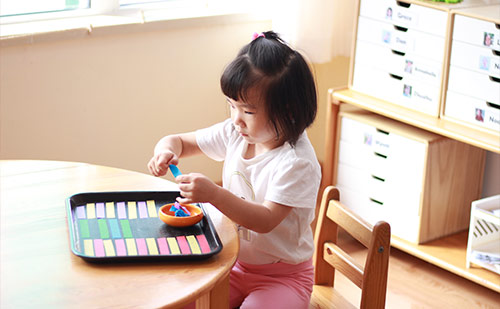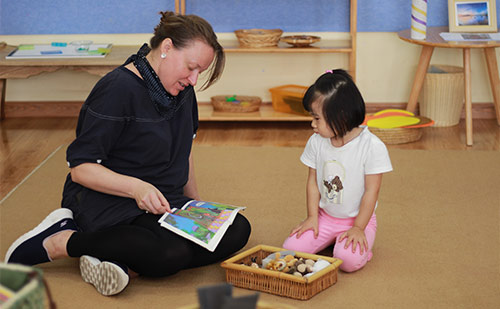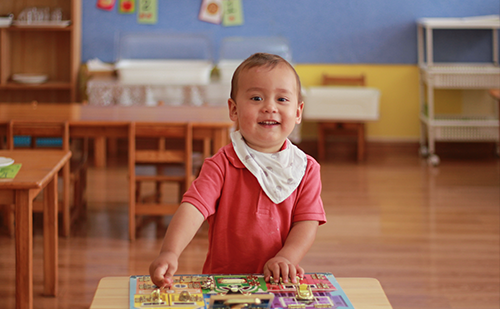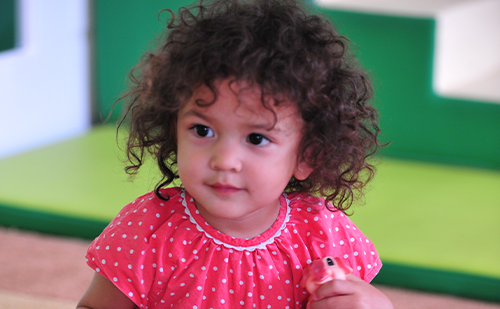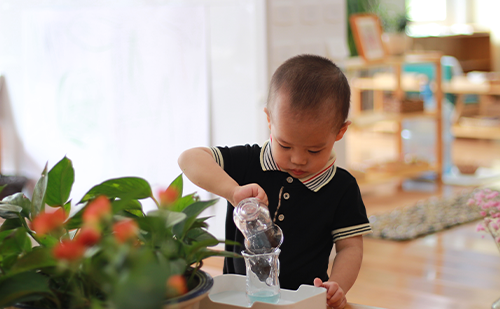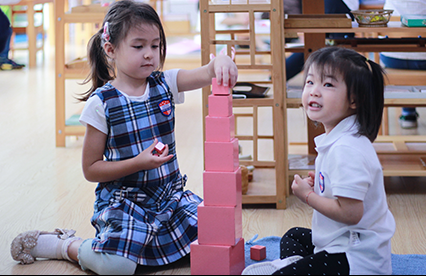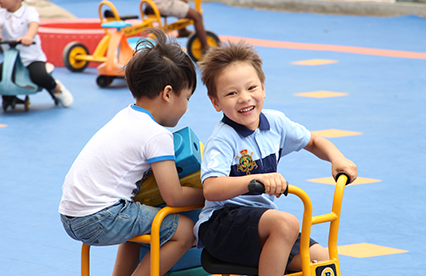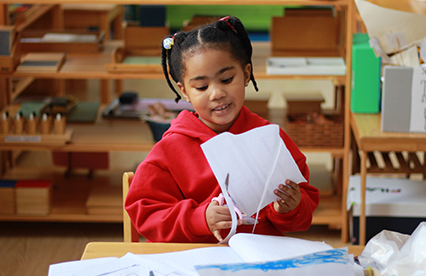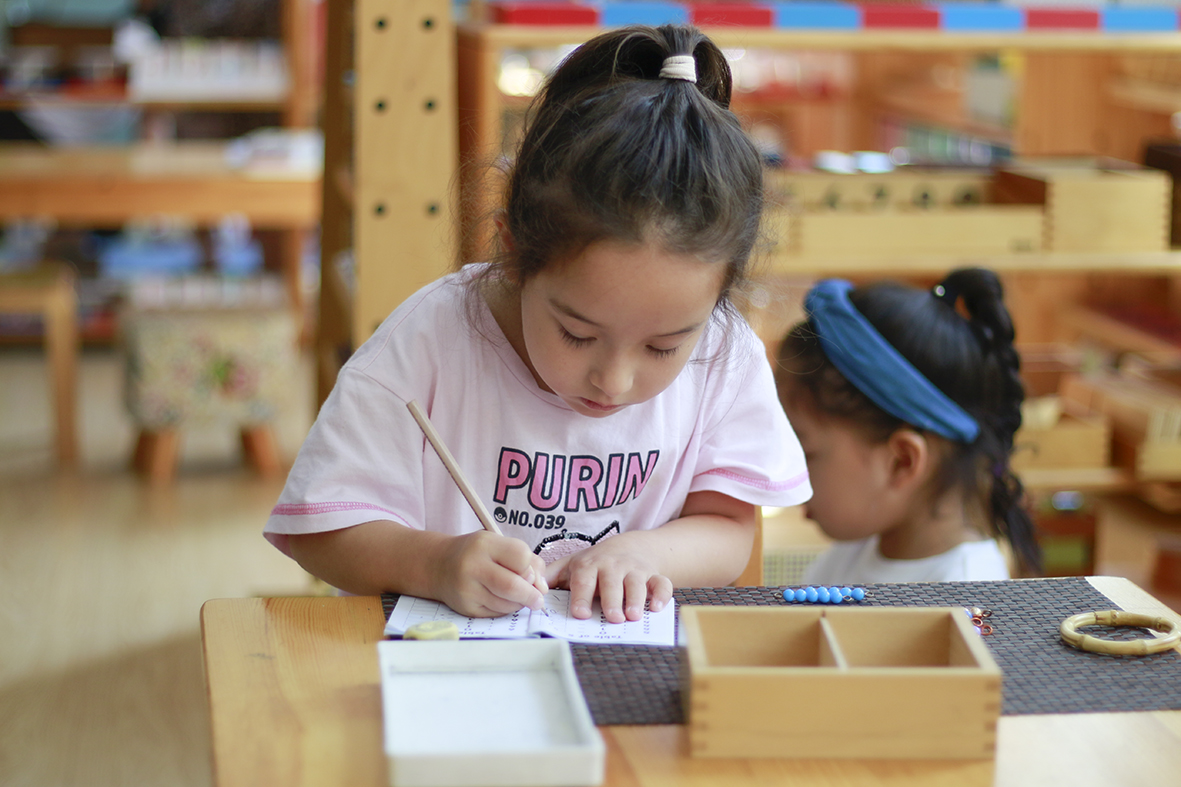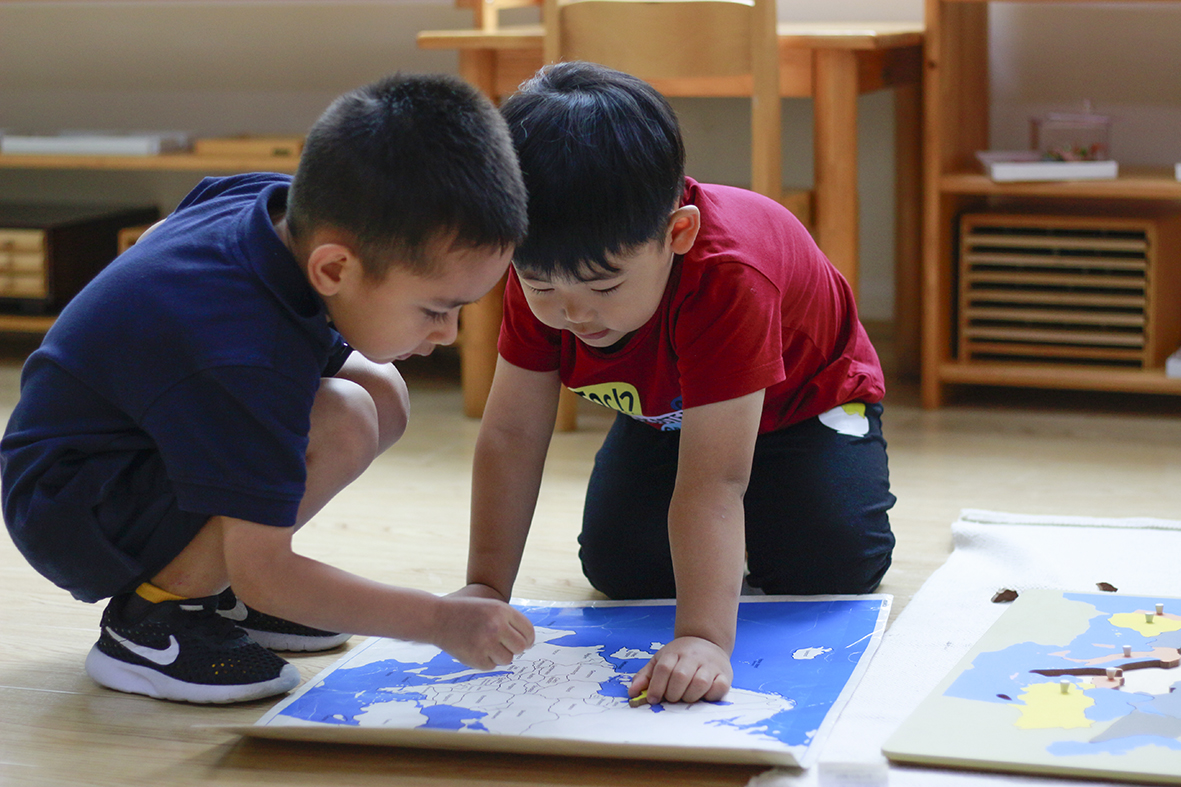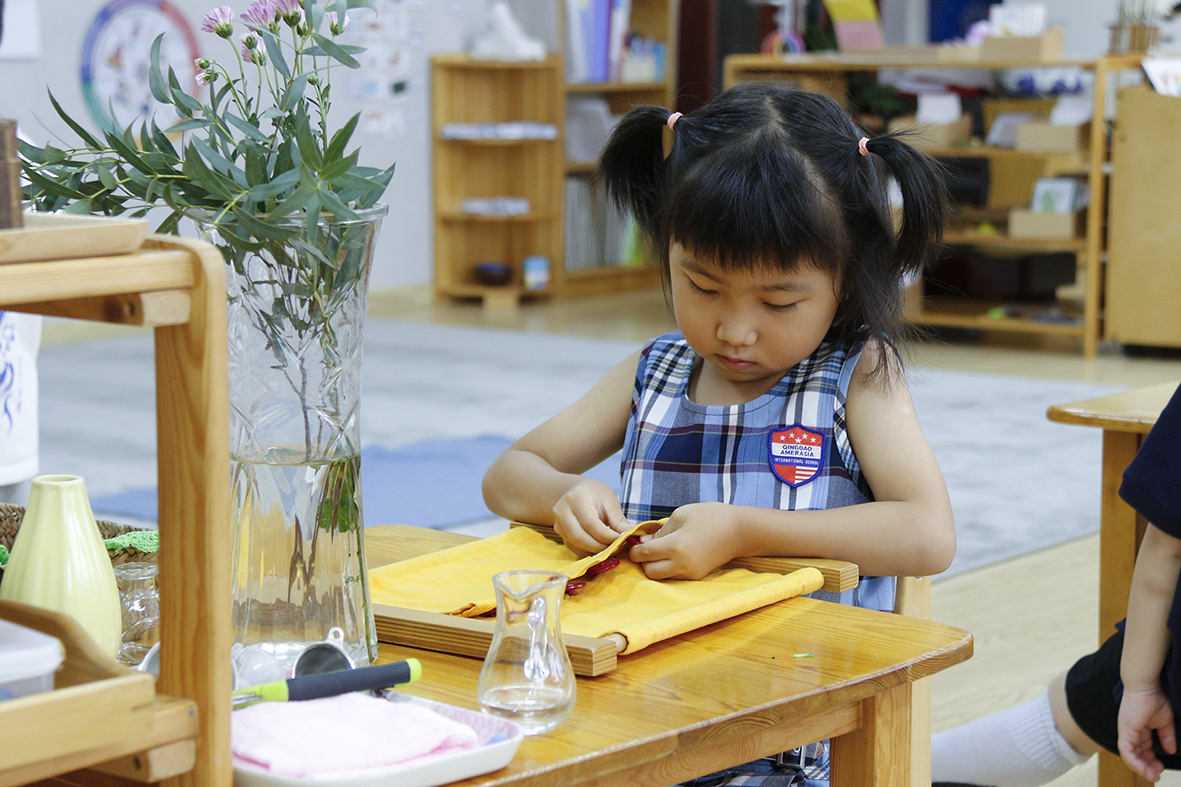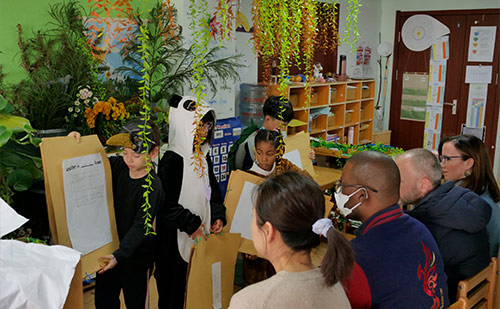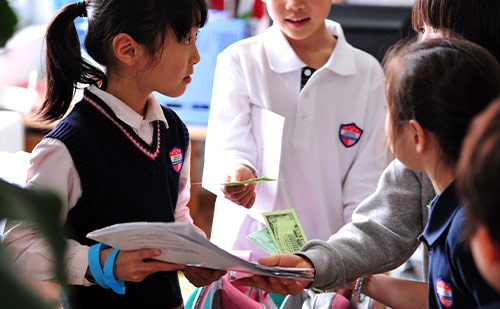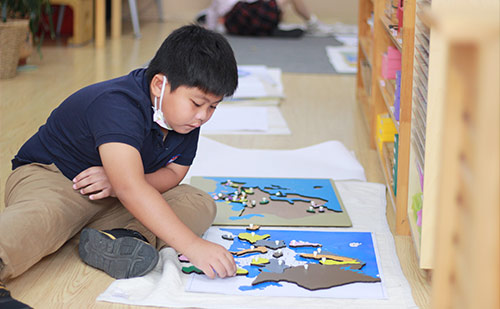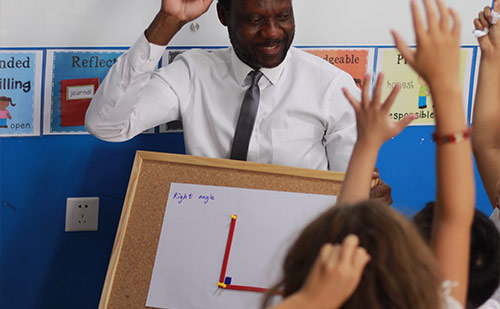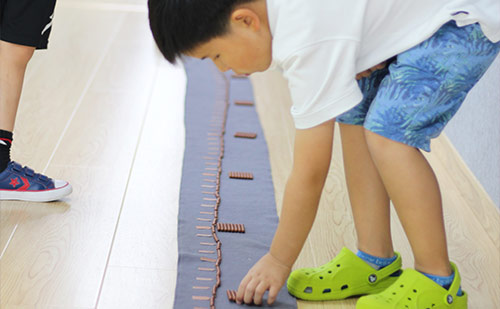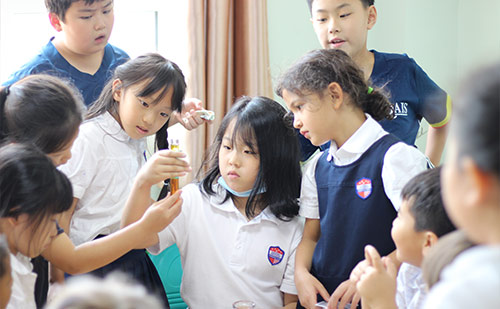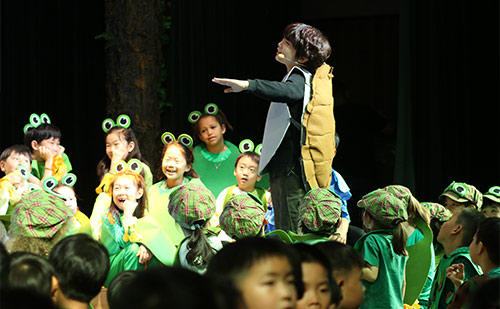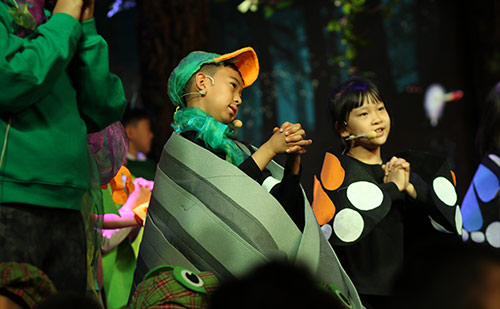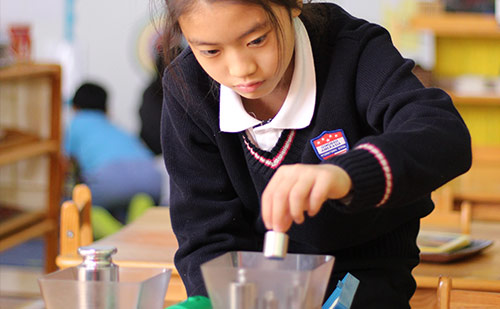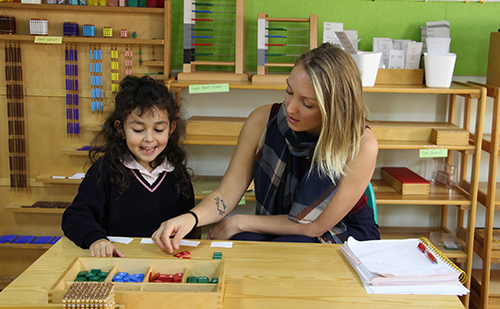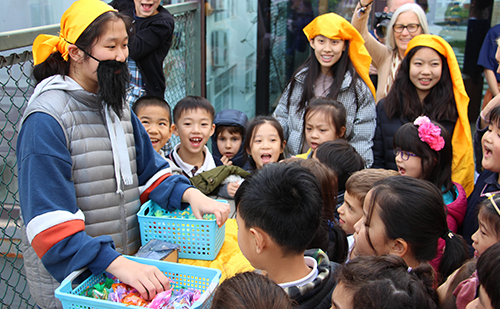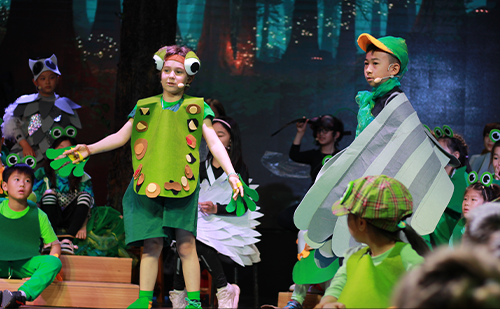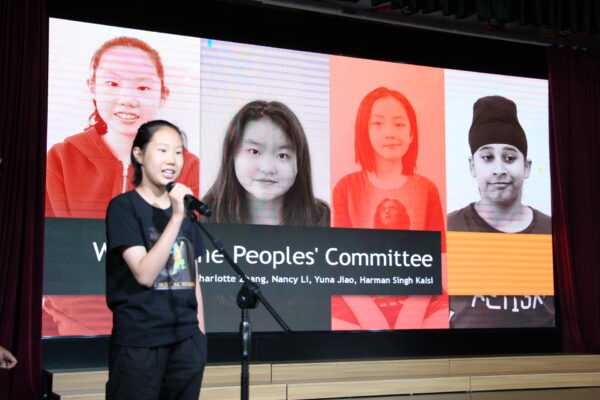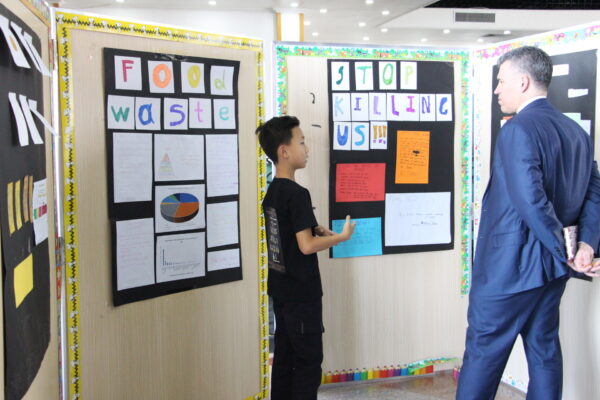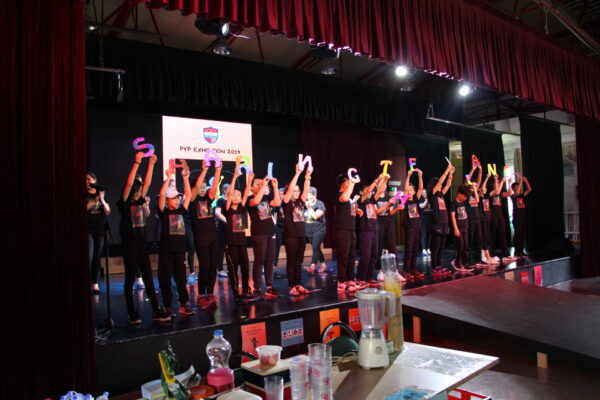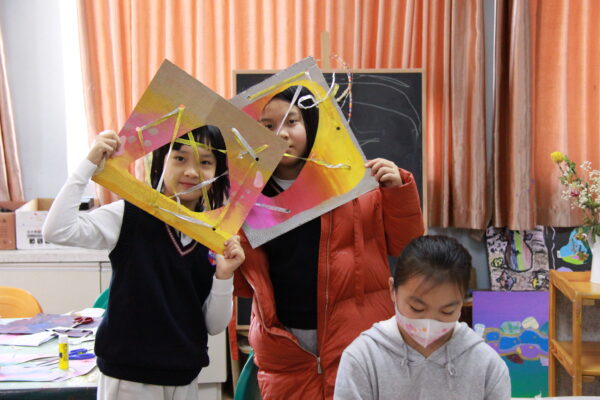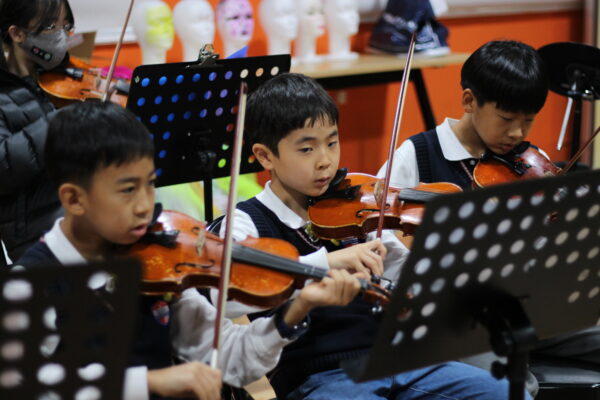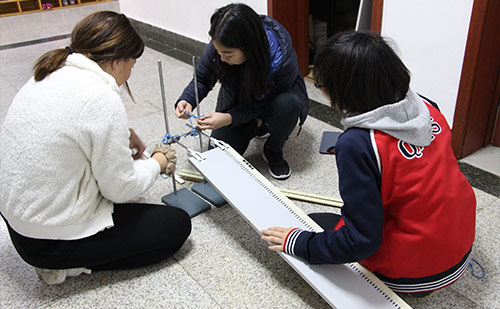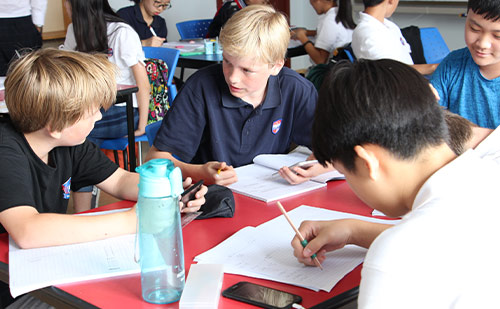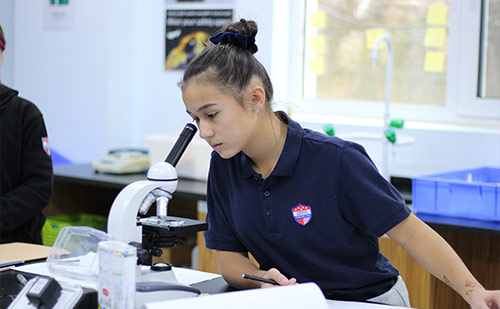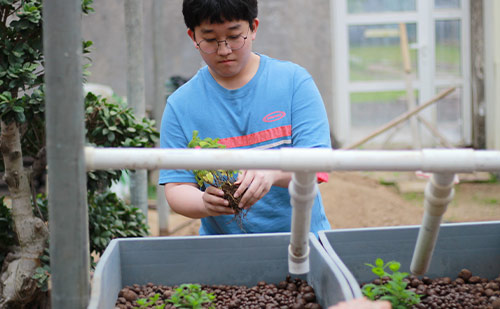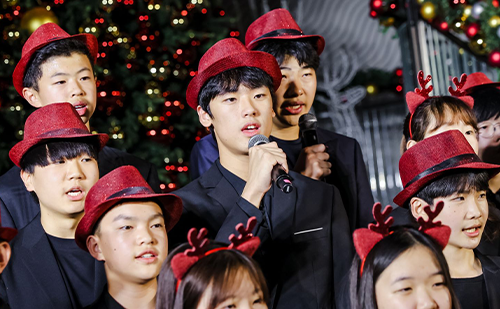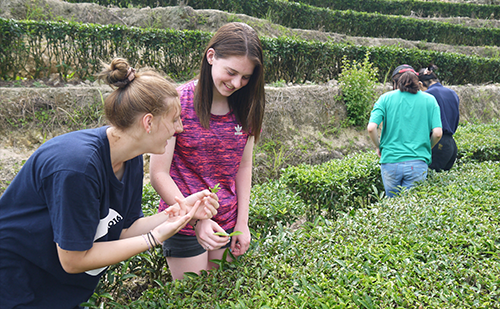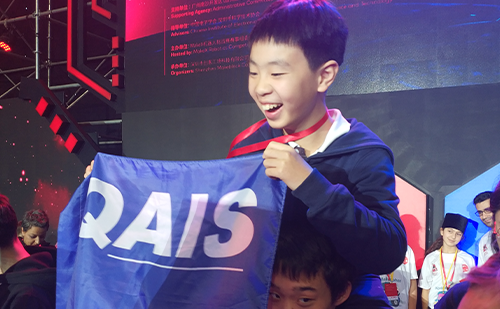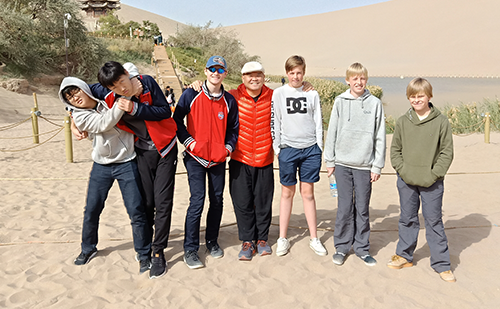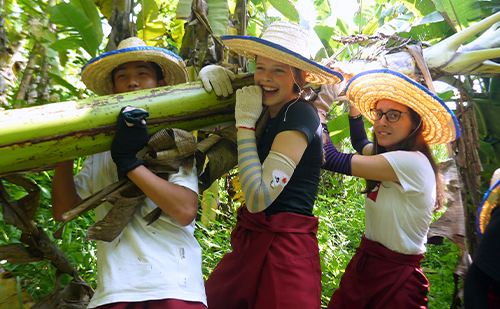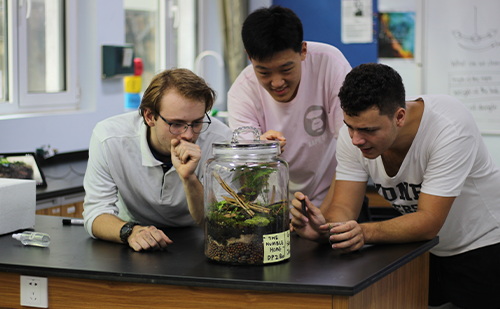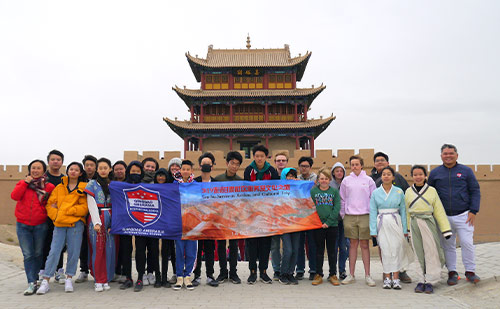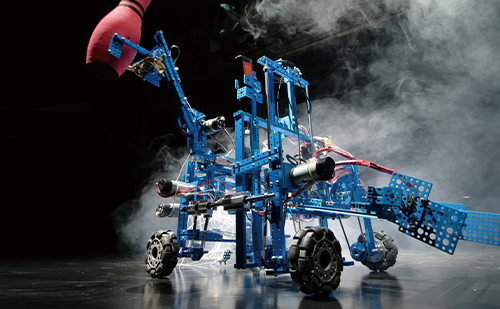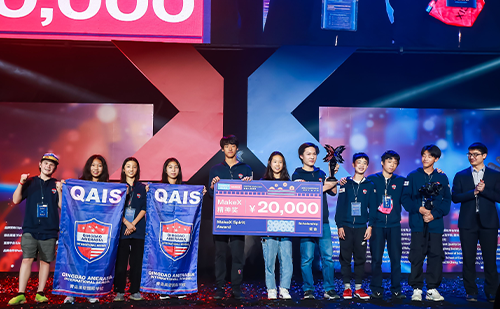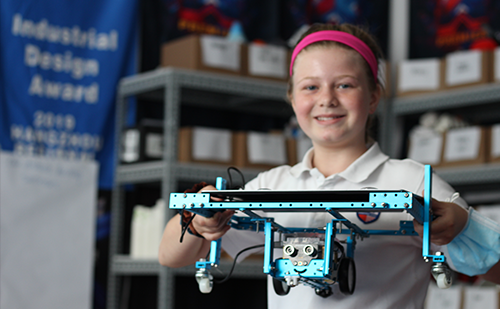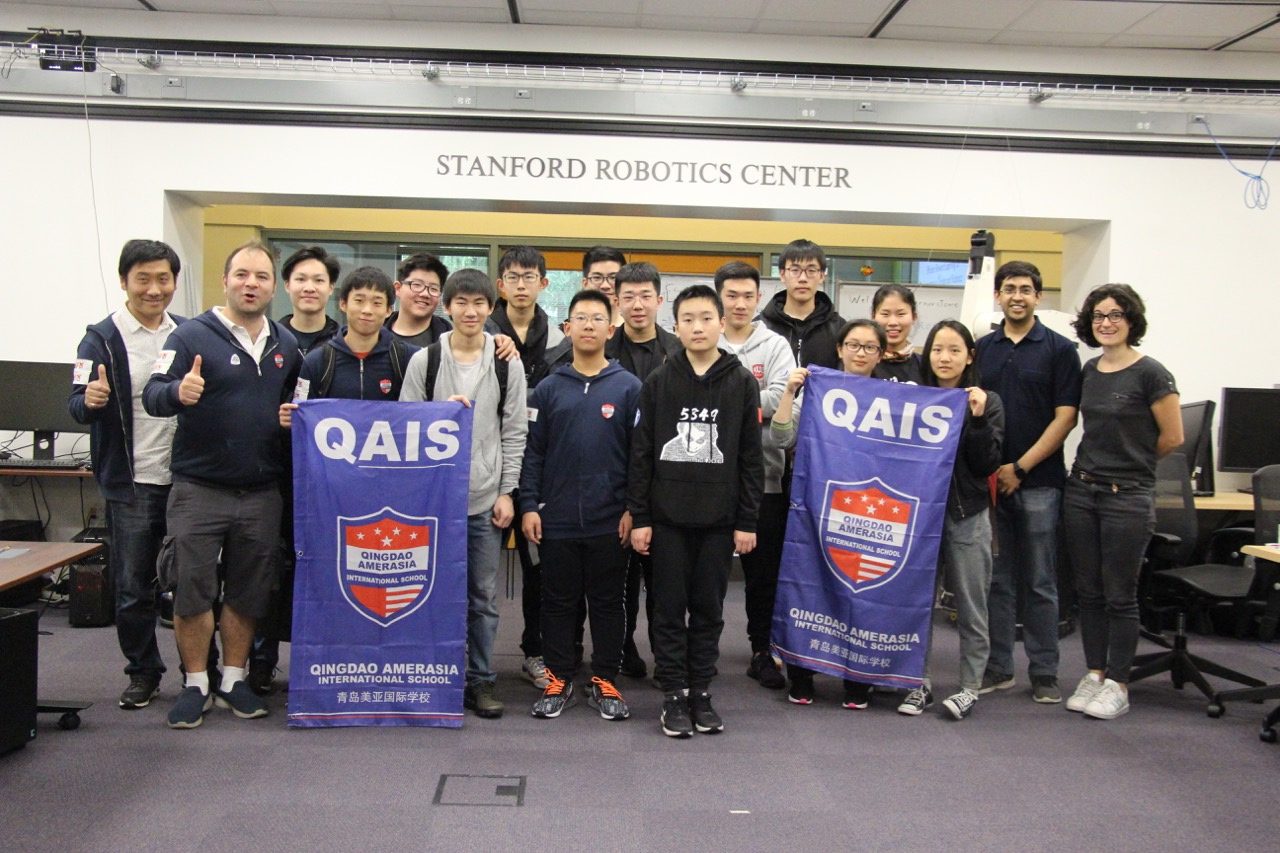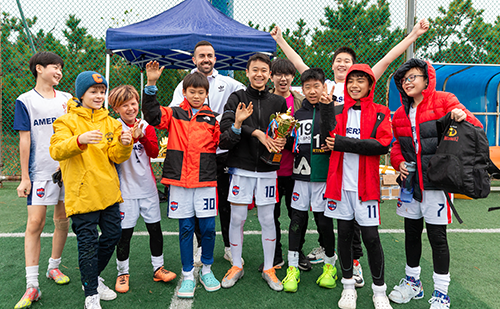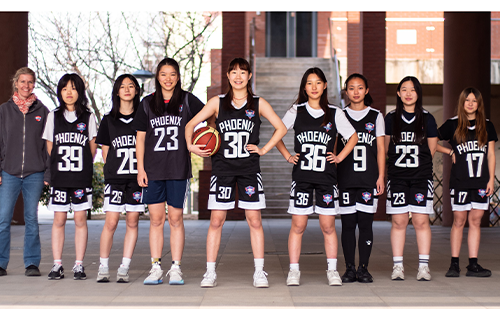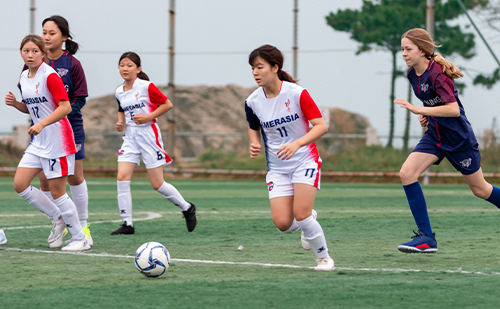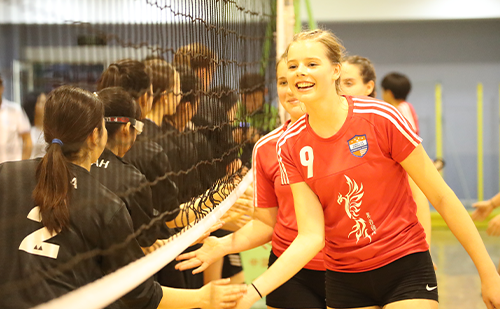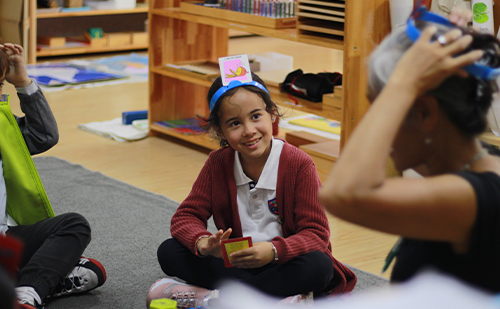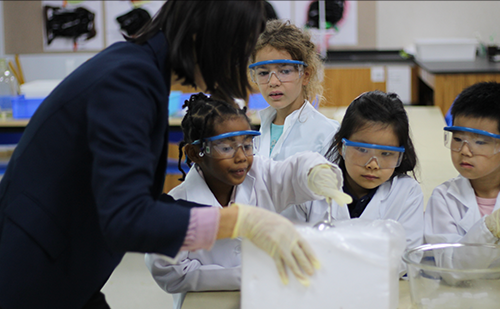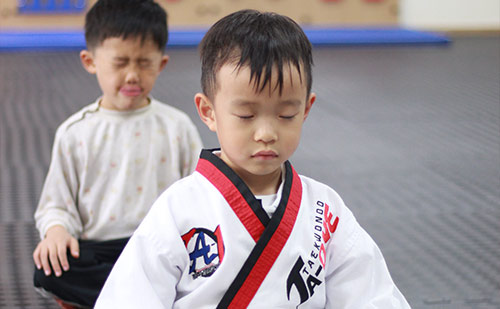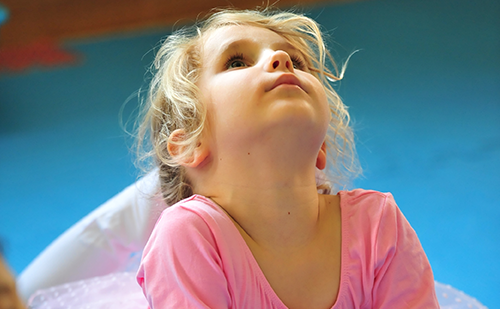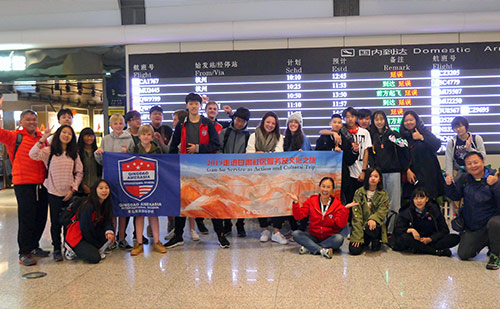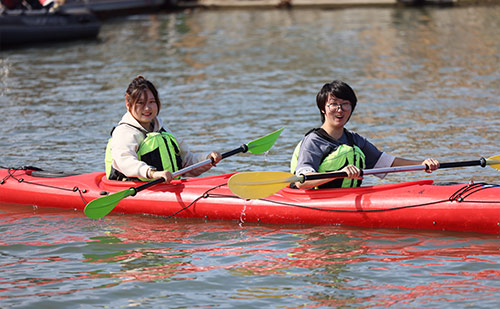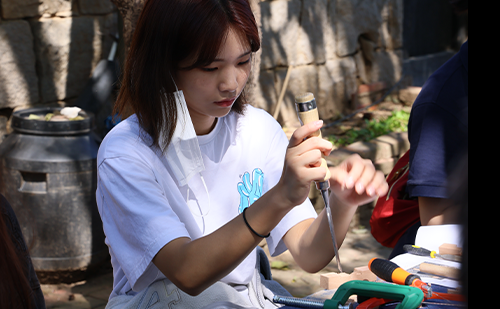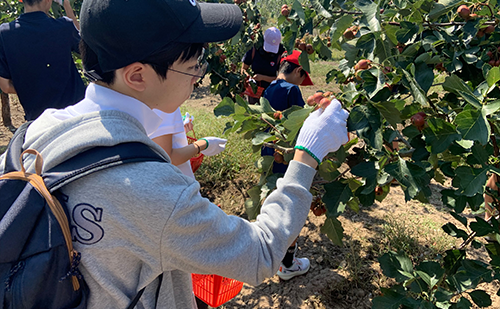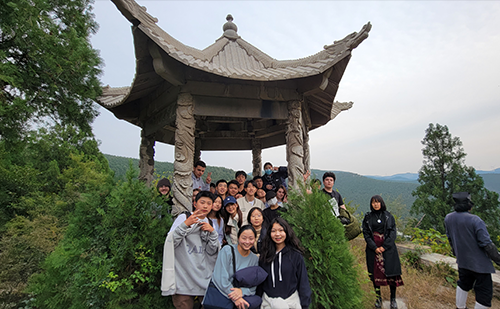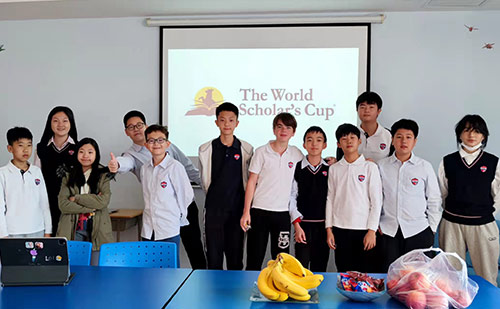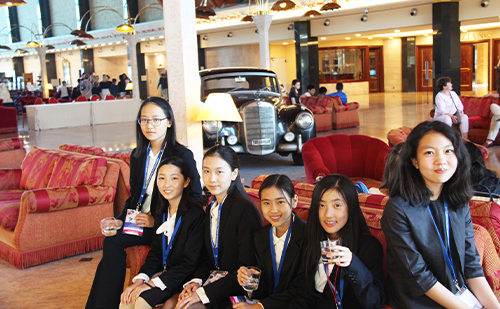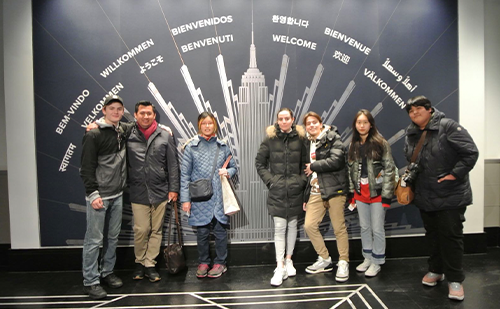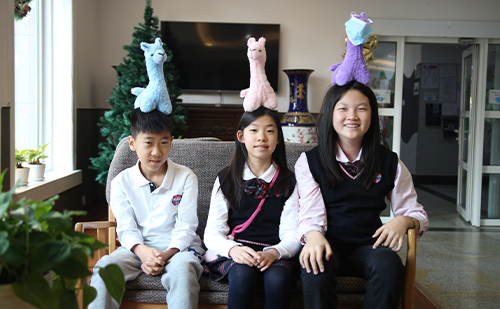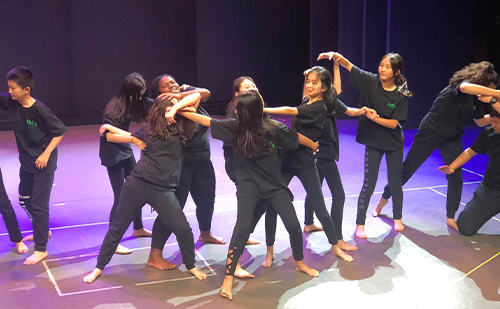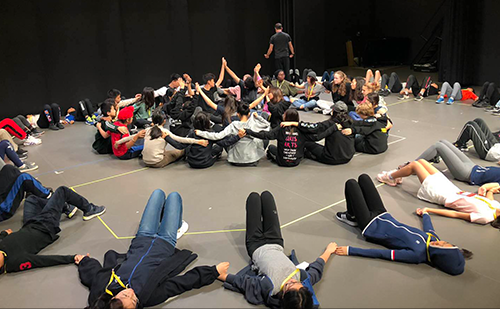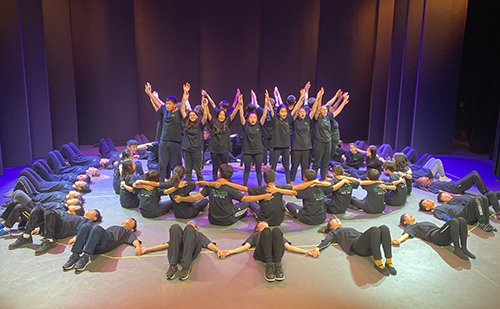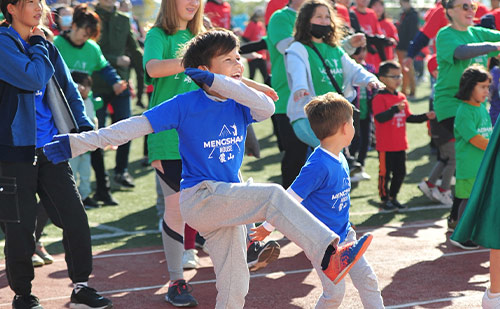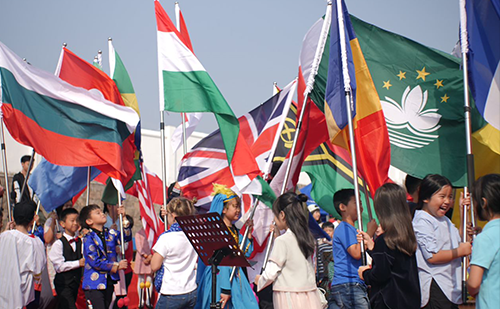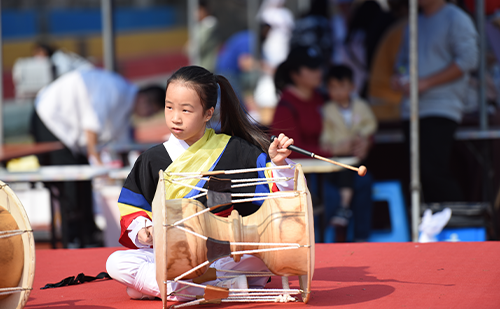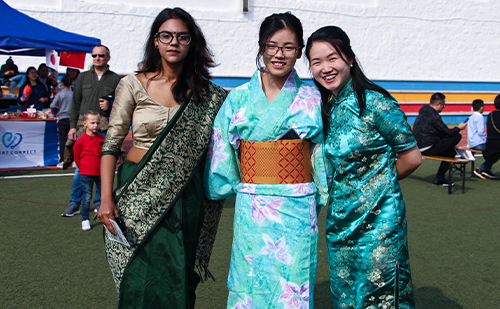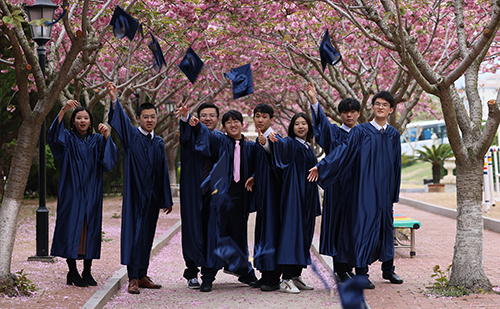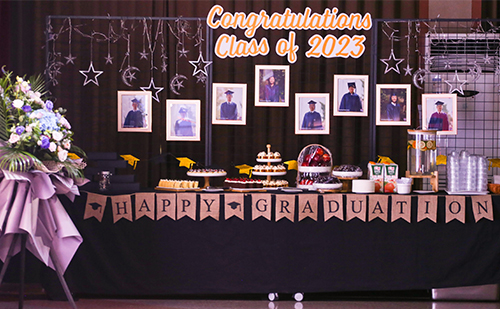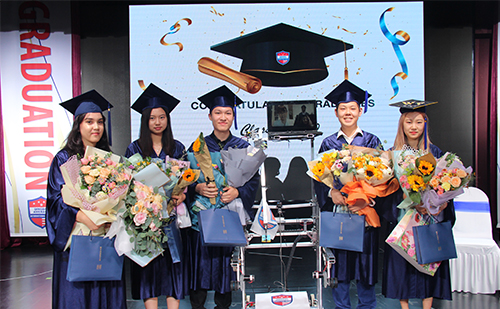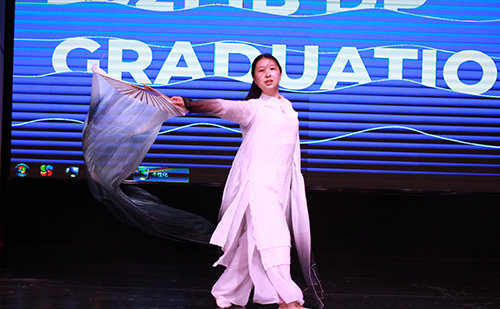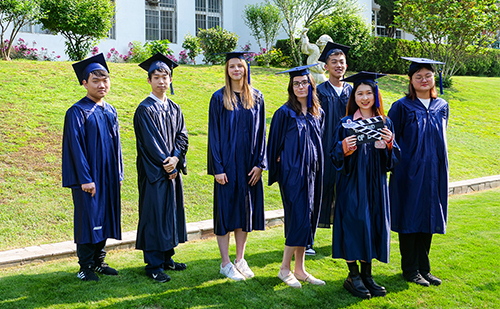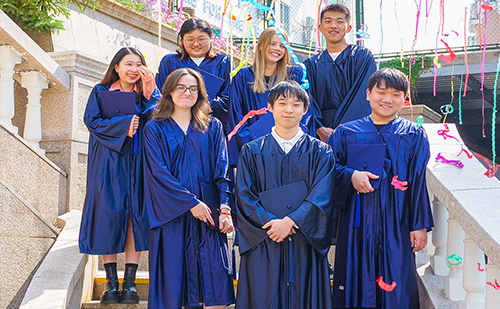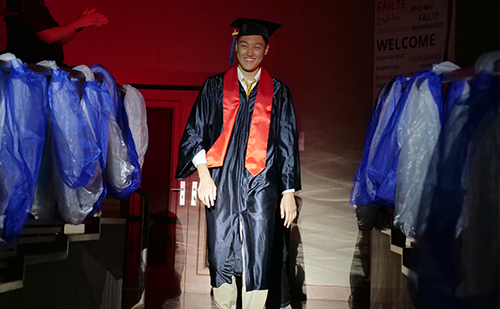
LOWER SCHOOL
Independence • Concentration • Love of Learning
Embracing diversity and developing global citizenship in a safe, stimulating environment, while developing independence, concentration, love of learning, and student agency remain the foundational values that guide our dynamic Lower School Montessori and IB PYP programs.
About QAIS
LOWER SCHOOL
LOWER SCHOOL
Embracing diversity and developing global citizenship in a safe, stimulating environment, while developing independence, concentration, love of learning, and student agency remain the foundational values that guide our dynamic Lower School Montessori and IB PYP programs.
Montessori Infant & Toddler
The Toddler classroom is a rich, educational environment filled with hands-on, sensorial activities in language, pre-math, and cultural studies that support the critical first plane of development. Dr. Maria Montessori discovered that children all over the world when given the choice, were drawn to real, purposeful activities, which form part of the Practical Life Curriculum including Gross Motor Activity, Fine Motor Activity, Grace & Courtesy, Care of the Environment, and Care of Self. Students enjoy freedom within limits to explore various interests in a multi-aged, prepared environment.
Montessori and IB PYP Early ChildhoodDr. Maria Montessori believed that children absorb knowledge effortlessly and have a natural and intense desire to learn about the world, particularly before age 6. By providing a stimulating, concrete, hands-on curriculum, children’s senses are awakened to the wonders of the world while developing a foundational understanding of abstract concepts in five curricular areas: Language Arts (English and Chinese), Mathematics, Practical Life, Sensorial, and Cultural Studies (Botany, Zoology, Geography, Art, and Music). The exploratory journey through this rich, profound curriculum is framed by four transdisciplinary IB PYP Units of Inquiry (UOIs): Who We Are, How We Express Ourselves, How the World Works, and How We Organize Ourselves. This unique and intellectually stimulating integrated curriculum develops individuals who are self-directed, confident, and creative, with a positive self-image and core academic skills that prepare them for elementary school and for life.
Montessori and IB PYP Grades 1-2
Classes in Grades 1 and 2 implement an approach to learning and teaching that is drawn from the dynamic integration of the International Baccalaureate (IB) Primary Years Programme (PYP) and the Montessori Lower Elementary curriculum and philosophy.
MONTESSORI’S COSMIC CURRICULUM takes students on a captivating, profound, and deeply enriching learning journey experienced through The Five Great Stories: The Story of the Universe, The Coming of Life, The Arrival of Humans, The History of Writing, and The History of Numbers.
Students engage in the exploration of these great stories through music, art, drama, dance and student-led individual and group presentations.
Content from The Five Great Stories, along with Montessori language, math, and cultural (science and social studies) materials are used to support six IB PYP Units of inquiry (UOI), that rotate through a three-year cycle: Who We Are, Where We Are in Place and Time, How We Express Ourselves, How the World Works, How We Organize Ourselves, and Sharing the Planet.
Classes in Grades 1 and 2 implement an approach to learning and teaching that is drawn from the dynamic integration of the International Baccalaureate (IB) Primary Years Programme (PYP) and the Montessori Lower Elementary curriculum and philosophy.
MONTESSORI’S COSMIC CURRICULUM takes students on a captivating, profound, and deeply enriching learning journey experienced through The Five Great Stories: The Story of the Universe, The Coming of Life, The Arrival of Humans, The History of Writing, and The History of Numbers.
Students engage in the exploration of these great stories through music, art, drama, dance and student-led individual and group presentations. Content from The Five Great Stories, along with Montessori language, math, and cultural (science and social studies) materials are used to support six IB PYP Units of inquiry (UOI), that rotate through a three-year cycle: Who We Are, Where We Are in Place and Time, How We Express Ourselves, How the World Works, How We Organize Ourselves, and Sharing the Planet.
IB PYP Grades 3–5Students in Grades 3-5 engage fully in the IB PYP, which nurtures and develops young scholars into competent, caring, active agents of change, both at school and beyond. Through its inquiry-led, transdisciplinary framework, the Upper Elementary curriculum challenges students to think for themselves, develop strong personal values, and take responsibility for their learning while investigating local and global issues and seeking opportunities for service, action, and problem-solving in real-world contexts.
PYP GRADE 5 EXHIBITIONThe PYP Exhibition is a transformative, culminating experience for Grade 5 students, as they take full control of their final transdisciplinary unit—Sharing the Planet—by exploring a global issue of personal significance, while engaging in an enlightening, creative research project in small groups, guided by a teacher mentor. The PYP Exhibition experience increases student awareness, self-motivation, confidence, and presentation skills, while educating the school community on how we can live more sustainable lives here on planet Earth.
The PYP Exhibition is a transformative, culminating experience for Grade 5 students, as they take full control of their final transdisciplinary unit—Sharing the Planet—by exploring a global issue of personal significance, while engaging in an enlightening, creative research project in small groups, guided by a teacher mentor. The PYP Exhibition experience increases student awareness, self-motivation, confidence, and presentation skills, while educating the school community on how we can live more sustainable lives here on planet Earth.
Upper School
Collaboration • Self-Actualization • Self-Transcendence
About QAIS
Upper School
Upper School
IB Middle Years Programme Grades 6-10The MYP develops critical and reflective thinking, inquiry, and innovation through the following courses: Language and Literature (English, Chinese, Korean), Language Acquisition (English and Chinese), Individuals and Societies, Experimental Sciences, Mathematics, Arts (Music, Visual Arts, Drama, Film), Physical and Health Education, and Design Technology. The MYP utilizes six global contexts to frame what is learned in the classroom and connect it to students’ lives and experiences: Identity & Relationships; Personal & Cultural Expression; Orientation in Space & Time; Scientific & Technical Innovation; Fairness & Development; and Globalization & Sustainability.
The MYP develops critical and reflective thinking, inquiry, and innovation through the following courses: Language and Literature (English, Chinese, Korean), Language Acquisition (English and Chinese), Individuals and Societies, Experimental Sciences, Mathematics, Arts (Music, Visual Arts, Drama, Film), Physical and Health Education, and Design Technology. The MYP utilizes six global contexts to frame what is learned in the classroom and connect it to students’ lives and experiences: Identity & Relationships; Personal & Cultural Expression; Orientation in Space & Time; Scientific & Technical Innovation; Fairness & Development; and Globalization & Sustainability.
MYP PERSONAL PROJECTThrough the Middle Years Programme Personal Project, students in MYP5 (Grade 10) experience the responsibility of completing a significant yearlong project of deep personal interest. The Personal Project enables students to engage in practical explorations through a cycle of inquiry, action, and reflection on both their learning and the outcomes of their work—key skills that prepare them for success in further study, the workplace, and the community.
Through the Middle Years Programme Personal Project, students in MYP5 (Grade 10) experience the responsibility of completing a significant yearlong project of deep personal interest. The Personal Project enables students to engage in practical explorations through a cycle of inquiry, action, and reflection on both their learning and the outcomes of their work—key skills that prepare them for success in further study, the workplace, and the community.
IB Diploma Programm Grades 11-12As our eldest students prepare to spread their wings and immerse themselves in the wider world after graduation, the IB DP Programme provides rigorous preparation for college life and beyond, allowing them to take their place as internationally minded global citizens. An IB Diploma is recognized in 159 countries and, as such, QAIS students have gained entrance to the world’s leading universities on four continents. Drawing on the strength of a diverse international community, our DP Programme provides the knowledge, skills, and understanding that empower students to become global leaders and peacemakers.
SUBJECTS:
Students choose 3 Higher Level (HL) and 3 Standard Level (SL) classes from among 6 subject groups: Language & Literature, Language Acquisition, Individuals & Societies, Experimental Sciences, Mathematics, and The Arts. In addition, students must complete the DP Programme Core: The Extended Essay, Theory of Knowledge, and CAS (Creativity, Activity, Service).
As our eldest students prepare to spread their wings and immerse themselves in the wider world after graduation, the IB DP Programme provides rigorous preparation for college life and beyond, allowing them to take their place as internationally minded global citizens. An IB Diploma is recognized in 159 countries and, as such, QAIS students have gained entrance to the world’s leading universities on four continents. Drawing on the strength of a diverse international community, our DP Programme provides the knowledge, skills, and understanding that empower students to become global leaders and peacemakers.
SUBJECTS:
Students choose 3 Higher Level (HL) and 3 Standard Level (SL) classes from among 6 subject groups: Language & Literature, Language Acquisition, Individuals & Societies, Experimental Sciences, Mathematics, and The Arts. In addition, students must complete the DP Programme Core: The Extended Essay, Theory of Knowledge, and CAS (Creativity, Activity, Service).
DP CORETOK (Theory of Knowledge):A required course that encourages students to think critically about the nature of knowledge and how it’s acquired, challenged, and evaluated. TOK aims to help students develop their own approach to knowledge and to consider the ways in which different areas of knowledge (such as the natural sciences, mathematics, history, and the arts) intersect and overlap. By the end of the course, students should be able to apply critical thinking skills and an awareness of different perspectives to a range of real-world situations.
TOK (Theory of Knowledge):A required course that encourages students to think critically about the nature of knowledge and how it’s acquired, challenged, and evaluated. TOK aims to help students develop their own approach to knowledge and to consider the ways in which different areas of knowledge (such as the natural sciences, mathematics, history, and the arts) intersect and overlap. By the end of the course, students should be able to apply critical thinking skills and an awareness of different perspectives to a range of real-world situations.
Extended Essay:A 4,000-word research paper that allows students to explore a topic of their choice in depth. Students work with a supervisor to choose a topic, conduct research, and develop an argument or analysis. The extended essay should demonstrate a student’s ability to engage in independent research and academic writing, and it’s an opportunity to explore an area of interest in greater detail. The extended essay is a required component of the Diploma Programme.
CAS (Creativity, Activity, and Service):An experiential learning requirement that invites students to engage in a range of activities beyond academics. CAS encourages students to develop skills, interests, and passions outside of the classroom by pursuing creative endeavors, engaging in physical activities, and participating in service projects. Students are expected to reflect on their experiences, set goals, and document their progress throughout the CAS program. CAS is intended to foster personal growth and to encourage students to become active, responsible members of their communities.
CAS (Creativity, Activity, and Service):An experiential learning requirement that invites students to engage in a range of activities beyond academics. CAS encourages students to develop skills, interests, and passions outside of the classroom by pursuing creative endeavors, engaging in physical activities, and participating in service projects. Students are expected to reflect on their experiences, set goals, and document their progress throughout the CAS program. CAS is intended to foster personal growth and to encourage students to become active, responsible members of their communities.
MUSIC, VISUAL ARTS, DRAMA & FILM
Developing appreciation for the diversity of practices, processes, and modes of expression in the fine and performing arts
The ARTSThe ARTS are a way of life at QAIS with the most comprehensive arts program in Shandong Province. Expert staff guide students to find ways of expressing themselves through music, visual arts, drama, and film, while producing high-quality musicals each year for the entire Qingdao community to enjoy..
The ARTS are a way of life at QAIS with the most comprehensive arts program in Shandong Province. Expert staff guide students to find ways of expressing themselves through music, visual arts, drama, and film, while producing high-quality musicals each year for the entire Qingdao community to enjoy..
MUSICStudents from Early Childhood to Grade 12 use the lens of music to explore big ideas and gain insights into themselves and the world around them, enhancing learner wellbeing. Ensembles include Concert Band, String Orchestra, and Mixed Choir: Sopranos, Altos, & Baritones. There are many opportunities for students to perform throughout the year. DP Music (theory, composition, performance) prepares students for a college major or career in music.
Students from Early Childhood to Grade 12 use the lens of music to explore big ideas and gain insights into themselves and the world around them, enhancing learner wellbeing. Ensembles include Concert Band, String Orchestra, and Mixed Choir: Sopranos, Altos, & Baritones. There are many opportunities for students to perform throughout the year. DP Music (theory, composition, performance) prepares students for a college major or career in music.
VISUAL ARTSStudents from Early Childhood to Grade 12 work in a range of 2D, 3D, and digital mediums to explore skills and techniques across a wide range of contexts, including IB Units of Inquiry, interdisciplinary collaborative tasks, and student-designed projects. Many students extend learning beyond the classroom to work in stage design, photography, and student-led art clubs after school.
Students from Early Childhood to Grade 12 work in a range of 2D, 3D, and digital mediums to explore skills and techniques across a wide range of contexts, including IB Units of Inquiry, interdisciplinary collaborative tasks, and student-designed projects. Many students extend learning beyond the classroom to work in stage design, photography, and student-led art clubs after school.
DRAMAStudents from Early Childhood to Grade 12 become aware of their own personal and cultural perspectives, developing appreciation for the diversity of theatre practices, processes, and modes of presentation. Drama courses connect with IB Units of Inquiry, enabling students to engage with different forms of theatre across time, place, and culture while promoting international mindedness. QAIS is a member of the International School Drama Association (ISTA) and has launched an impressive list of musicals and dramatic productions, performed at least once each year, creating a unique theater landscape for the international community in Qingdao city:
Seussical (2017), Peter Pan (2018), Once on This Island (2018), Little Shop of Horrors (2019), Honk (2019), Shrek (2020), Into the Woods (2021), Swamped (2022), You’re a Good Man, Charlie Brown (2022), and Romeo and Juliet (2023).
Students from Early Childhood to Grade 12 become aware of their own personal and cultural perspectives, developing appreciation for the diversity of theatre practices, processes, and modes of presentation. Drama courses connect with IB Units of Inquiry, enabling students to engage with different forms of theatre across time, place, and culture while promoting international mindedness. QAIS is a member of the International School Drama Association (ISTA) and has launched an impressive list of musicals and dramatic productions, performed at least once each year, creating a unique theater landscape for the international community in Qingdao city: Seussical (2017), Peter Pan (2018), Once on This Island (2018), Little Shop of Horrors (2019), Honk (2019), Shrek (2020), Into the Woods (2021), Swamped (2022), You’re a Good Man, Charlie Brown (2022), and Romeo and Juliet (2023).
FILMSecondary film courses aim to develop students as proficient interpreters and makers of film texts. Students examine film concepts, theories, practices, and ideas from multiple perspectives, challenging their own viewpoint and biases to understand and value those of others, while developing critical abilities and appreciation of artistic, cultural, historical, and global perspectives in film.
Secondary film courses aim to develop students as proficient interpreters and makers of film texts. Students examine film concepts, theories, practices, and ideas from multiple perspectives, challenging their own viewpoint and biases to understand and value those of others, while developing critical abilities and appreciation of artistic, cultural, historical, and global perspectives in film.
ROBOTICS AND DREAM LAB
Contributing to the development of our increasingly automated world
ROBOTICS
QAIS offers a world-class Robotics program. The innovative environment encourages students to take risks and develop problem-solving skills, while promoting teamwork and leadership. The QAIS Robotics teams are ranked among China’s best, after having placed in several Make-X Championships since 2017. In 2018, QAIS won the Industrial Design Award at the RCC International Robotics Open and was a finalist at the First Robotics Competition in Shanghai. In 2019, QAIS was the overall champion at the Make-X Premier Qingdao Regional Invitational Championship while placing second at the Make-X World Robot Conference in Beijing. Amerasia placed in the top four in the RCC championship in Hangzhou, and then participated in the FRC global competition in Silicon Valley, California, USA as a representative of the Asia-Pacific region, competing with the world’s top teams and learning from each other.
DREAM LAB
If you can dream it, you can make it in the Amerasia Dream Lab, a space created to combine the technical, innovative mechanics of robotics with the aesthetics and complexity of modern fine arts. Dream Lab students extend learning beyond the classroom to work in stage design, photography, and student-led art clubs after school, learning how to operate machines and equipment such as 3D printers, laser cutters, CNC machines, electric planers, table jig saws, bench drills, aluminum cutting machines and more, all to support students in realizing their imaginative concepts and designs.
SPORTS & ATHLETICS
Teamwork • Self-Confidence • Sportsmanship
SPORTS & ATHLETICS
SPORTS & ATHLETICS
Teamwork Self-ConfidenceSportsmanship
SPORTS & ATHLETICS
QAIS promotes healthy lifestyles by offering students a wide range of athletic activities that nurture great sportsmanship and confidence on and off the field, while empowering students to challenge themselves. QAIS participates in the Qingdao International Sports Network (QISN) which allows students to compete in volleyball, basketball, football, table tennis, and badminton with eight other international schools in and around Qingdao. QAIS takes pride in the excellence of our athletics program, our numerous championships, and our reputation throughout the city for great sportsmanship.
AFTER SCHOOL ACTIVITIES
Expanding Our World
QAIS runs a robust extra-curricular program, offering after school activities to Grades K-12 twice per week in the Fall and in the Spring. Students can choose from a wide variety of classes and clubs in athletics, arts, robotics, service, personal hobbies and well-being that engage, inspire, and empower.
GLOBAL CITIZENSHIP
Sharing the Planet
CAS
Creativity, Activity, Service (CAS), together with Theory of Knowledge (TOK) and the Extended Essay (EE), forms part of the IB Diploma Programme “Core,” and involves students in a range of activities alongside their academic studies. CAS provides opportunities for self-determination, perseverance, problem-solving, decision-making, and collaboration with others, fostering a sense of accomplishment and enjoyment from their work.
Service as Action
QAIS values opportunities for learners to work outside the classroom and commit to service projects in the local, national, and global communities. Furthermore, we believe acts of selfless service help students develop compassion and emotional maturity. In the MYP, students are required to participate in community and service-based activities. While the Service as Action (SA) Coordinator assists in finding and publicizing activities throughout each year, the students initiate their own activities with their mentors in their daily Advisory sessions. Ultimately, it is the student’s responsibility to show personal initiative in choosing and developing engaging projects. IB Learners strive to be caring members of the human family who demonstrate a commitment to service – making a positive difference to the lives of others and to the environment.
Week without Walls
As part of the Upper School’s IB curriculum, it is essential for students to be given the opportunity to experience learning in the classroom as well as outside of it. In our planned trips, through collaboration with WildChina*, students and teachers will go beyond the walls of school to learn, grow, and serve together.
Through these experiences we aim to:
· Promote the development and reflection of the IB Learner Profile attributes
· Challenge students to develop themselves physically, intellectually, socially, emotionally, and spiritually
· Develop relationships with peers and build community
· Promote sustainable development through the exploration of the UN’s Sustainable Development Goals (SDGs)
· Create authentic service experiences.
More about WildChina
Founded in 2000, WildChina Education is an award-winning travel company that curates experiential learning programs for the world’s leading institutions, including Harvard University. Their commitment to safety and sustainability, as well as their variety of high-quality excursions has made them Asia’s oldest and most established leader in experiential and creative educational travel.
Through these experiences we aim to:
· Promote the development and reflection of the IB Learner Profile attributes
· Challenge students to develop themselves physically, intellectually, socially, emotionally, and spiritually
· Develop relationships with peers and build community
· Promote sustainable development through the exploration of the UN’s Sustainable Development Goals (SDGs)
· Create authentic service experiences.
More about WildChina
Founded in 2000, WildChina Education is an award-winning travel company that curates experiential learning programs for the world’s leading institutions, including Harvard University. Their commitment to safety and sustainability, as well as their variety of high-quality excursions has made them Asia’s oldest and most established leader in experiential and creative educational travel.
MUN & World Scholar’s Cup
MODEL UNITED NATIONS
Students become deeply engaged in critical and contemporary world issues by assuming the role of ambassador or reporter. The MUN conferences are designed to meet the needs of students at their current stage of development. By working to solve real-world issues in a developmentally appropriate setting, students become active members of the world they will inherit as adults.
WORLD SCHOLAR’S CUP
Students in MYP 1 – DP 2 participate in an international academic competition comprised of over 15,000 students from more than 65 countries to qualify for the Tournament of Champions held at Yale University each year. This unique competition celebrates the joy of learning and provides an enriching opportunity for students to demonstrate their existing strengths and discover new ones. Students are tested on their knowledge of six subject areas: history, art and music, literature and media, science and technology, social studies, and a special area. They compete in a team debate, collaborative writing exercise, team quiz, and individual multiple-choice tests.
ISTA
QAIS is a proud member of ISTA—a passionate, culturally diverse, collaborative, celebratory, playful, friendly, and collegial community of young people, teachers, and artists. QAIS students travel to various ISTA festivals throughout the world to engage with peers while confronting global issues and themes through artistic and dramatic activities designed to inspire, leave lasting memories, and transform the lives of everyone who takes part.
School Events
QAIS aims to cultivate an inclusive and vibrant community through engaging and inspiring events throughout the year. QAIS hosts more than 300 events from Toddler to DP 2 throughout the year, and comes together annually for full school events, which promote inclusivity and foster a sense of belonging in all members of the Amerasia family.
COLLEGE COUNSELING & FUTURE READINESS
Preparing to serve humanity and our planet
The Amerasia College Counseling Program, led by world-renown College and Careers Counselor, Dr. Kierstan F. Connors (“Dr. KFC”) offers students the power and responsibility to take control of their college application journey through our innovative Five-Finger Balance Approach™. Spanning seven years from Grades 6-12, this comprehensive program delves deeply into each student's natural talents, interests, and passions to help them discover the "best fit" university and major. Through self-discovery and the development of a detailed transcript and resume enriched with extracurricular activities, service, passion projects, and internships, our students are fully prepared for the next step in their academic journey.
Utilizing a cutting-edge digital research platform, students explore top global universities and build robust portfolios. They also receive personalized support to write persuasive personal statements and supplemental essays, and to prepare for university entrance interviews. With this program, Amerasia students are equipped to excel and achieve their higher education goals with confidence.
Utilizing a cutting-edge digital research platform, students explore top global universities and build robust portfolios. They also receive personalized support to write persuasive personal statements and supplemental essays, and to prepare for university entrance interviews. With this program, Amerasia students are equipped to excel and achieve their higher education goals with confidence.
